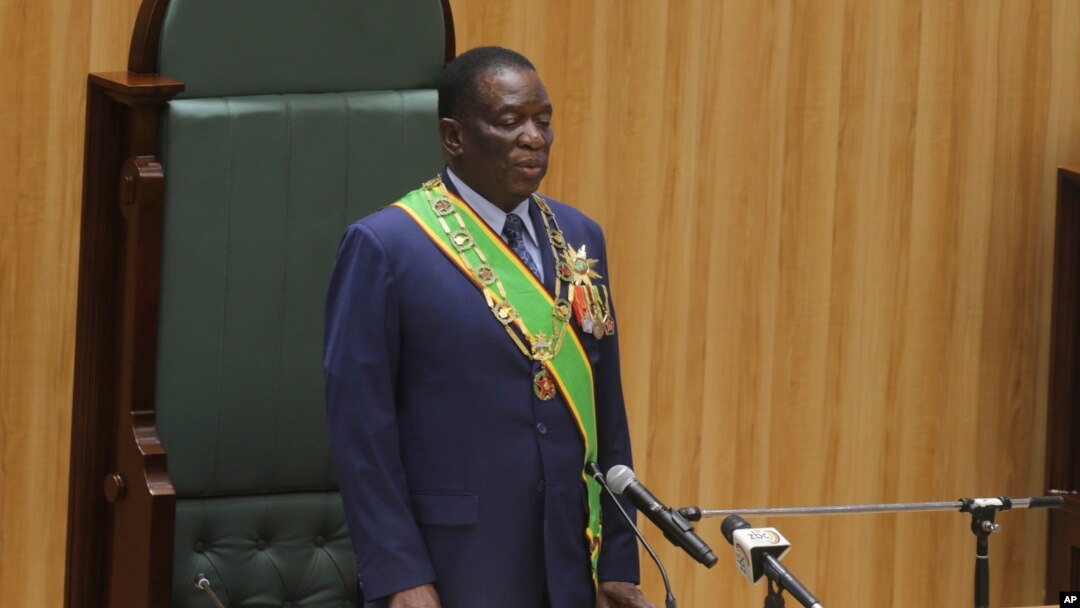"The targeting of civil society and severe restrictions on political activity have stifled fundamental freedoms, while key actors, including government leaders, have siphoned off public resources for personal gains," read the statement released by the NSC spokesperson Adrienne Watson.
Watson said, "illicit activities" by some Zimbabwean authorities have contributed "to a global criminal network of bribery, smuggling, and money laundering" that has impoverished communities in the southern African nation, its neighboring countries and other parts of the world.
The U.S. will apply sanctions under what is known as the Global Magnitsky Program in attempt to hold Zimbabwean officials accountable.
The new sanctions replace penalties imposed under an executive order in 2003, which were no longer in effect, according to the White House.
"The Department of the Treasury is designating three entities and eleven individuals including President Emmerson Mnangagwa, Vice President Constantino Chiwenga, Brigadier General (Retired) Walter Tapfumaneyi, and businessman Kudakwashe Tagwirei, pursuant to Executive Order 13818, which builds upon and implements the Global Magnitsky Human Rights Accountability Act, for their involvement in corruption or serious human rights abuse," Watson said.
Zimbabwean authorities deny Washington's allegations of human rights abuses and say Western sanctions have harmed the nation’s economic development.
In response, the U.S. says the measures "do not represent sanctions on Zimbabwe or its public."
The NSC says, "the administration reaffirms its commitment to work with the people of Zimbabwe, will continue to robustly support civil society, human rights defenders and independent media to promote values consistent with the Zimbabwe Democratic and Economic Recovery Act of 2001 (ZIDERA)."
Washington will "take additional measures to hold accountable those who deny Zimbabweans the democratic freedoms and good governance they deserve," read Watson’s statement.



